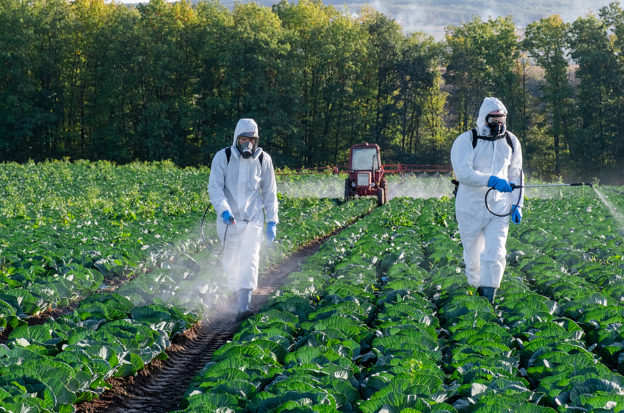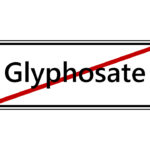By David Blyweiss, M.D., Advanced Natural Wellness
December 19, 2020
Years ago, I switched to a mainly plant-based diet. Most of the time, this way of eating is very enjoyable. But, during the winter, it can be a little harder to find my favorite organic fruits and vegetables.
I’m a little particular on this front, because I try hard to keep my weekly dose of poisonous chemicals to a minimum.
And I’m not exaggerating there. Because every time you venture into the produce aisle, you are surrounded by foods that have been doused in poisonous chemicals… called pesticides.
It’s all legal. But that doesn’t mean it’s good for your body.
Let me explain…
Exposing the Poison on Your Produce
In the United States, pesticides are used to control the growth of weeds. They also protect valuable crops from insects, rodents, and molds. This is all done so that the farmers can make as much money as possible selling their goods on the market.
After crops are harvested, even more chemicals are layered on to increase storage life and prevent the foods from spoiling. When residues from these pesticides remain on the foods you eat, it can lead to a wide range of diseases and disorders. [1]
MD Exposes the Hidden Danger to Your Eyes

When your eyesight starts to fail, it's a real problem. Suddenly you can't go to the grocery store... you can't get to the doctor if you have an emergency... you can't meet your friends for dinner…
Your "regular" doctor doesn't have time to keep up with the latest research. And the same goes for eye doctors. They go to school to learn how to fit you for glasses and contacts, but have no way of preventing the damage and loss of eyesight that threatens your freedom and independence.
Let me show you something that explains a LOT about how your eyes work.
In my FREE Special Report, I'll show you a HUGE, untapped resource for your eyes that safely and naturally restores clear, effortless eyesight.
Click here to get started...
There are three main kinds of pesticides – named for how they work. Herbicides are weed killers. The most common one you’ve probably heard of is Round Up, which contains a poison called glyphosate.[2]
Glyphosate is nasty stuff. It damages DNA, causes cancer and even acts as an endocrine (hormone) disruptor inside the body.[3] You’ll find it on almost all corn, soybean, cotton, sugar beet, and alfalfa growing in the U.S. The chemical also makes its way into packaged foods using these ingredients.
Then, there are insecticides like the infamous DDT – which was written about by naturalist Rachel Carson. DDT is still widely used in Mexico and has been found to cause DNA damage in humans.[4] So those non-organic strawberries from Mexico you see in the market?…avoid them if you can.
Finally, fungicides are designed to protect crops from molds. Their use has increased lately because new hybrid seeds cooked up in labs are more prone to fungal diseases. The largest selling fungicide is called Mancozeb.[5]
These types of pesticides all work a little differently, but there’s one thing they have in common…
They’re dangerous!
Worldwide, nearly 300,000 deaths each year can be traced back to pesticide poisoning. These chemicals are also strongly linked to major diseases like cancer, Parkinson’s, Alzheimer’s, respiratory problems, and reproductive issues. [6]
Your Body is Being Slowly Dosed with Chemicals
It’s not just eating them that’s the problem either. Pesticides can cause your body harm just by coating your skin, being breathed in, or even through contact with your eyes. [7]
Maybe you’ll want to roll up your car windows next time you see a farmer spraying his fields.
Once your body has been exposed, the levels of poison in your system will gradually increase until you show physical symptoms. In fact, one of the major places where pesticides are stored is in your body fat. [8]
A person who experiences long-term exposure will get sicker and sicker over a period of months or years. They experience symptoms like:
Are You Suffering From...
- Love handles and a pot belly
- Romance that isn't what it used to
- Forgetfulness and inattention
- Low (or no) strength and endurance
- A sex drive that's shifted into neutral...or worse
If so...you may have Mature Male Burnout. Click here to discover more about this unique condition and what you can do about it.
- Impaired memory and concentration,
- Disorientation
- Severe depression
- Irritability
- Confusion
- Headaches
- Speech difficulties
- Delayed reaction times
- Sleep troubles like nightmares, drowsiness, and even insomnia[9]
These symptoms may just be the start of your troubles though…
One study looked at 360 babies born to Mexican farm workers who were exposed to the insecticide DDT. Their babies had impaired brain function due to the poison. [10]
Another 7-year study conducted in Southern Span found that even the general population had higher rates of cancer. These numbers were reported in areas where pesticides were used more heavily. [11]
Then, a study from Denmark looked at 113 women who had baby boys. After pesticide exposure, the little boys had stunted reproductive organs.[12]
Just Say “No” to Pesticides with These 3 Tips
You can fight back against this poison dose by making smart decisions at the grocery store and in your kitchen.
1) Eat organic foods whenever possible. I like to refer to the Environmental Working Group’s (EWG) list of “dirty dozen.”[13] These are the fruits and vegetables that are most likely to be coated in a heavy layer of pesticides.
Stay away from non-organic produce like strawberries, peaches, apples, sweet bell peppers, celery, nectarines, cherries, lettuce, grapes, pears, spinach, and potatoes.
2) Eat plenty of dark leafy greens. These foods come with antioxidants and chlorophyll which help cleanse toxins from the body.
Cruciferous vegetables are another great option. They help your body create a detox enzyme called glutathione-s-transferases (GTS). This binds to pesticides in your body and helps remove them via your stool.
3) Discard the outer layers and peels. The outside layers of your fruits and vegetables are more likely to be covered in pesticides. So remove them whenever possible.
These are some pretty simple tips but they make a big difference when it comes to your long-term exposure to these chemicals.
Sources:
[1] Kumar, Naveen, et al. “Harmful effects of pesticides on human health.” Annals of Agri-Bio Research 17.2 (2012): 125-127.
[2] Koller VJ, et al. “Cytotoxic and DNA-damaging properties of glyphosate and Roundup in human-derived buccal epithelial cells.” Arch Toxicol. 2012 May;86(5):805-13
[3] Gasnier C. et al. “Glyphosate-based herbicides are toxic and endocrine disruptors in human cell lines.
[4] Yáñez, Leticia, et al. “DDT induces DNA damage in blood cells. Studies in vitro and in women chronically exposed to this insecticide.” Environmental Research 94.1 (2004): 18-24.
[6] Sabarwal, Akash, Kunal Kumar, and Rana P. Singh. “Hazardous effects of chemical pesticides on human health–Cancer and other associated disorders.” Environmental toxicology and pharmacology 63 (2018): 103-114.
[8] Ejobi,F., Kanja, L.W., Kyule, M.N., Muller, P., Kruger, J., and Latigo, A.A.R. (1996). Organochlorine pesticide residues in mothers’ milk in Uganda. Bull. Environ. Contam. Toxicol. 56: 873-880.
[9] Worthington, V. (1998). Effect of agricultural methods on nutritional quality: a comparison of organic with conventional crops. Alternative therapies in Health & Medicine 4: 58-69.
[10] Eskenazi, Brenda, et al. “In utero exposure to dichlorodiphenyltrichloroethane (DDT) and dichlorodiphenyldichloroethylene (DDE) and neurodevelopment among young Mexican American children.” Pediatrics 118.1 (2006): 233-241.
[11] Parrón, Tesifón, et al. “Environmental exposure to pesticides and cancer risk in multiple human organ systems.” Toxicology Letters 230.2 (2014): 157-165.
[12] Andersen, Helle R., et al. “Impaired reproductive development in sons of women occupationally exposed to pesticides during pregnancy.” Environmental health perspectives 116.4 (2008): 566-572.
[13] EWG’s 2020 Shopper’s Guide to Pesticides in Produce™. Environmental Working Group. https://www.ewg.org/foodnews/dirty-dozen.php







